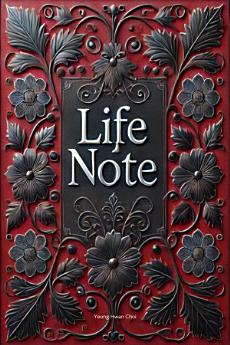關於這本電子書
"Is it ever truly right to bring a child into this world? In a reality marred by suffering and inequality, are we merely perpetuating the chains of existence, or is there a deeper truth we have yet to uncover?"
In the shadow of a violent protest over a women’s university’s transition to co-education, one professor stumbles upon something extraordinary: a Life Note. This unassuming notebook possesses a chilling power—to summon anyone whose name is written within its pages. What begins as an accidental discovery spirals into a profound exploration of morality, existence, and the human condition.
Amid a society obsessed with political correctness, anti-natalism, and the illusion of equality, the professor finds himself at the crossroads of life and death. Should humanity continue to perpetuate itself in a world fraught with suffering? Or is refraining from birth the ultimate act of compassion?
These questions take center stage as the professor uses the Life Note to summon history's greatest minds, including Jesus, Buddha, Einstein, and other luminaries, for answers.
Together, they wrestle with the universe’s most confounding questions:
Is life an inescapable cycle of suffering, or is there meaning in the chaos?
Does free will truly exist, or are we pawns of cosmic inevitability?
Is the Big Bang the beginning of all, or just one phase in an infinite sequence?
Can humanity overcome its divisions of gender, ideology, and power to find true equality?
Blending philosophy, science, and spirituality, Life Note grapples with humanity's most painful truths: the rise of anti-natalism, the burdens of procreation, and the inherent struggles of existence itself. From the heart of a fractured society, the professor embarks on a journey that transcends time, calling forth conversations with history’s greatest thinkers to uncover whether humanity deserves its place in the cosmos.
What would you ask Buddha or Jesus if you had the chance? Would Einstein’s theories shed light on your doubts about existence? If given the power to decide who lives or dies, would you dare wield it?
In a world teetering on the edge of extinction, Life Note is a harrowing, thought-provoking tale that forces readers to confront their beliefs about morality, birth, and the meaning of life.
This book is not just a story; it’s a mirror. A mirror reflecting the discomforting truths of our time: a world rife with gender wars, ideological clashes, and existential despair.
Open the Life Note, and step into a world where the power to destroy or preserve humanity rests in one person’s hands. Will you dare to read what comes next?
評分和評論
關於作者
After nearly a decade of working as a public servant, I resigned and ventured through various businesses before finally settling into writing. It feels as though I am on the verge of publishing my fourteenth book, and as an independent author. While I wouldn't say I'm an exceptional writer, I continue this journey because it brings me immense joy.
However, The literary world often categorizes war and conflict as evils while depicting peace and equality as virtues. This binary thinking is not confined to Korean literature; it permeates global trends as well.
Historically, literature has intertwined art and science, drawing on the insights of physicists, scientists, and philosophers. Yet, contemporary literature seems overly focused on emotions and suffering, often neglecting the full spectrum of human potential.
Why are we trapped in binary thinking, unable to fully grasp the implications of duality? Certainly, beliefs wield significant influence over humanity, and once formed, they are challenging to reverse. Thus, my writings may not profoundly impact those who hold firmly to their views.
Nonetheless, I wish for both global and Korean literature to embrace true diversity. These ideologies, rooted in human-centric thinking, drift away from the natural order. Humans are not the masters of nature.
From a physical standpoint, the universe is defined by relativity, quantum mechanics, and the second law of thermodynamics, embodying both relativity and simultaneity within disorder. The ideal of equality is merely a human construct, not a natural order. Why must one side be deemed good while the other is evil? Is that a rule set by divine authority?
Perhaps I am an odd person for saying this. I wanted to raise my voice in a literary arena that feels skewed.







